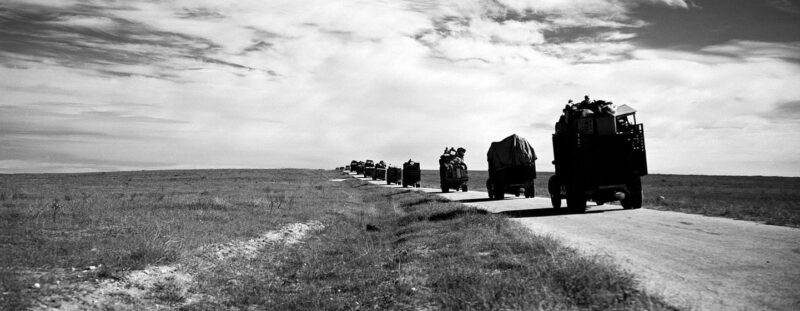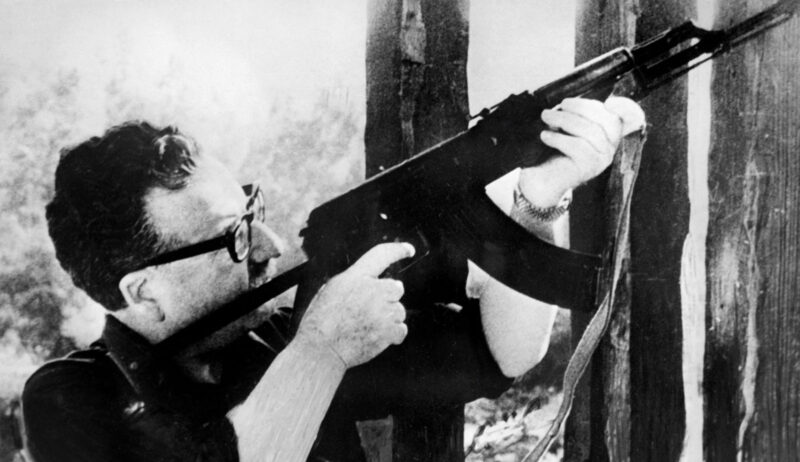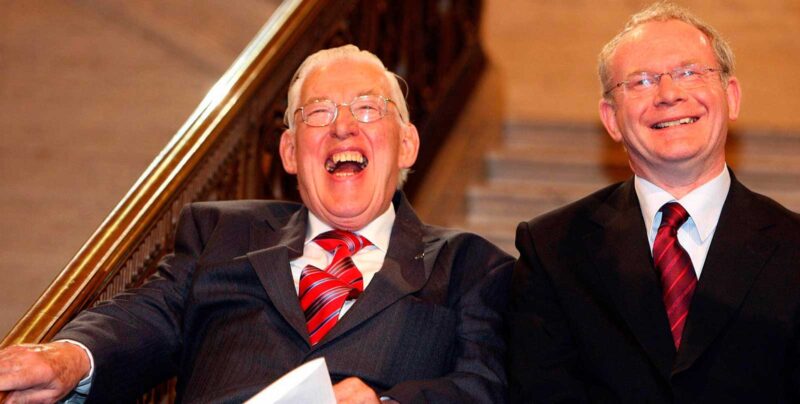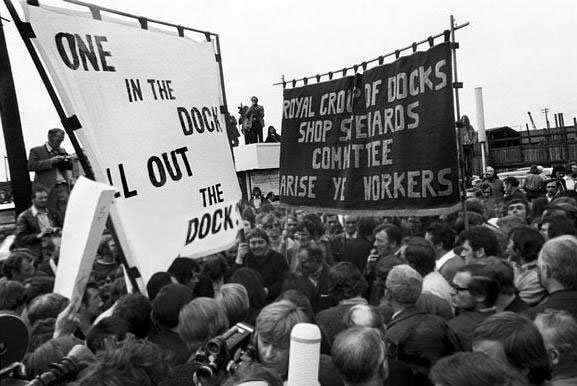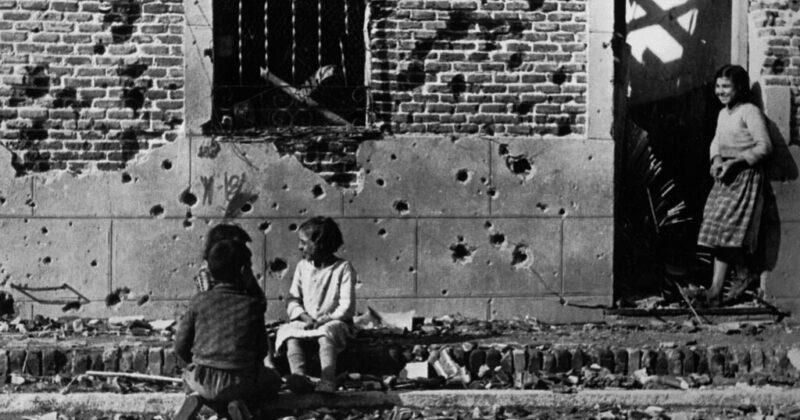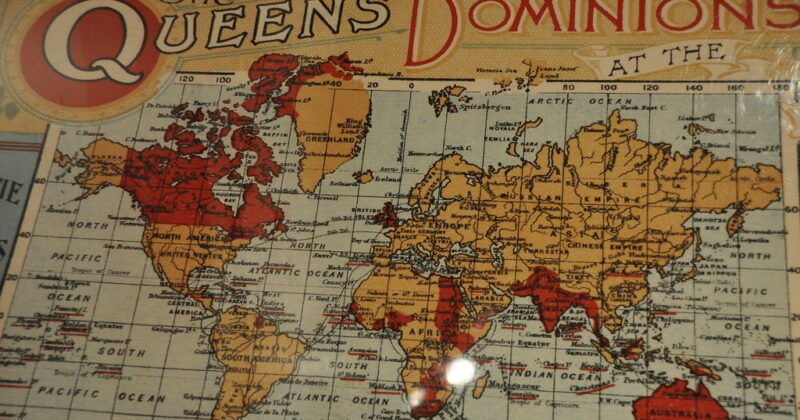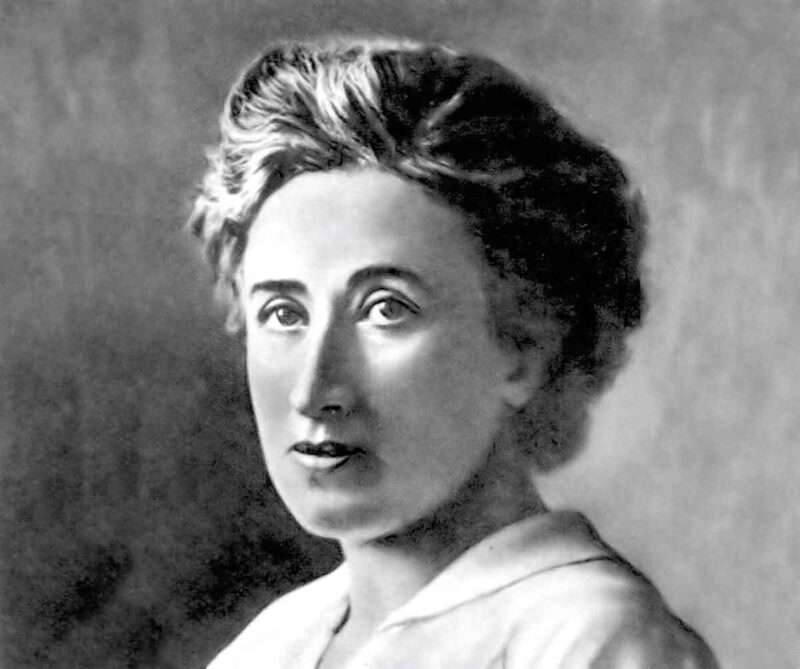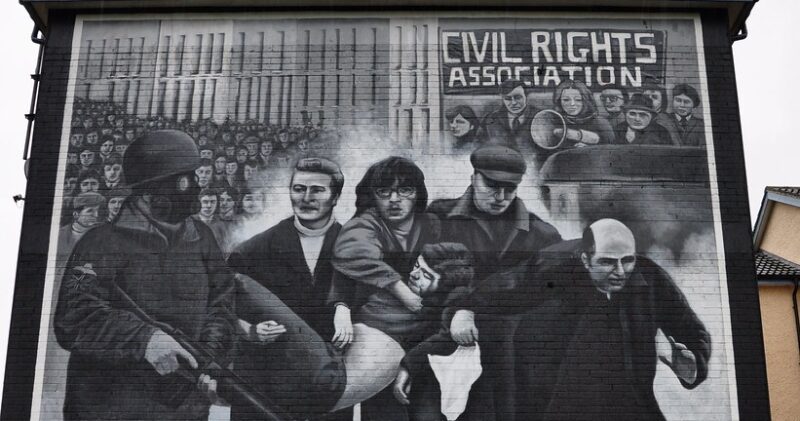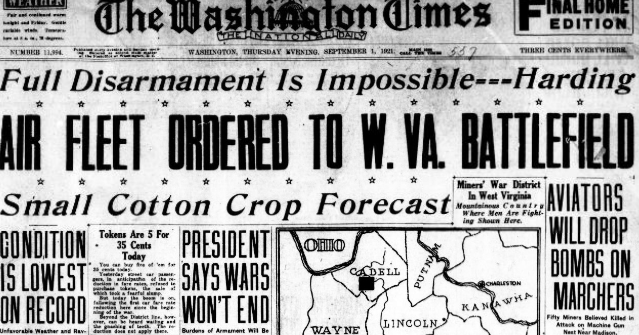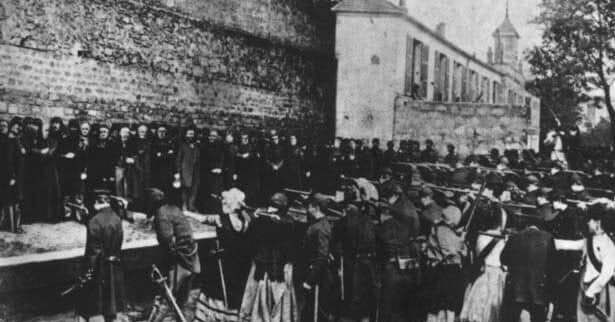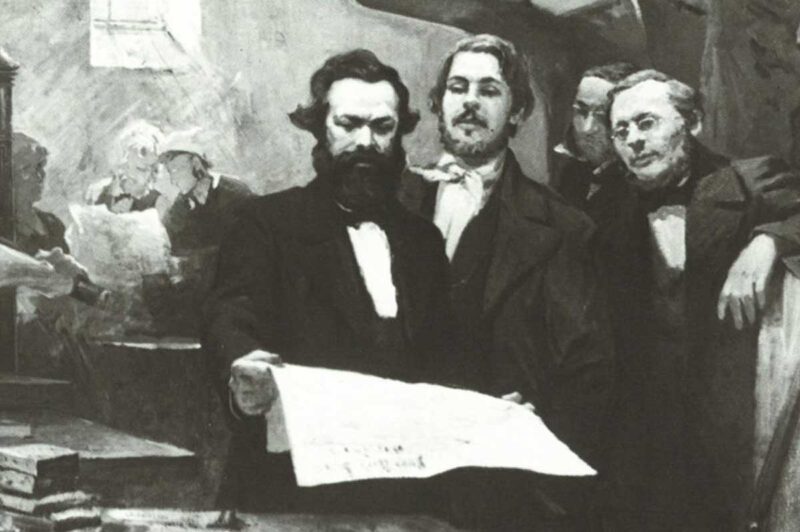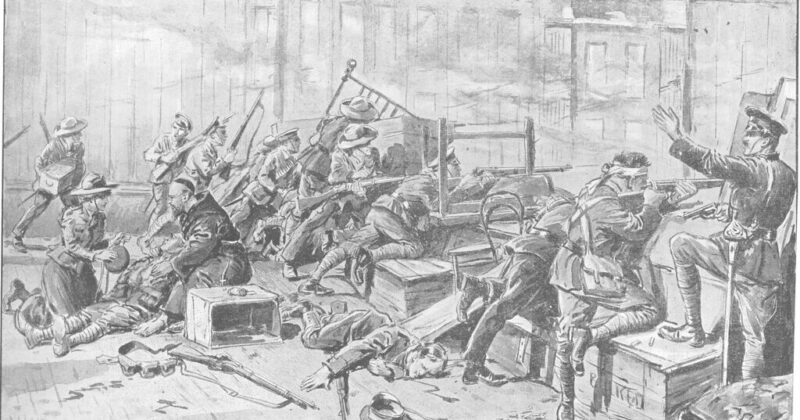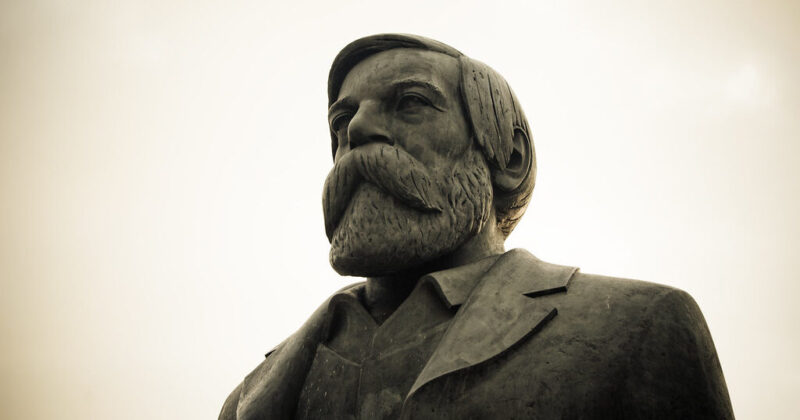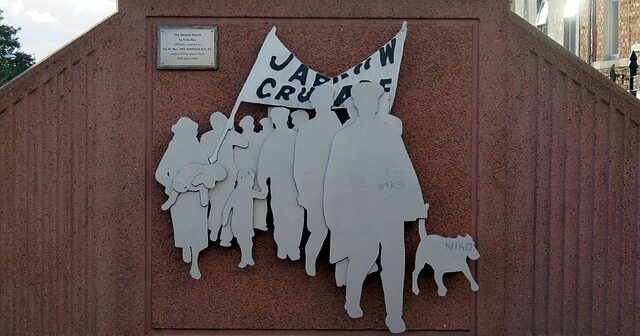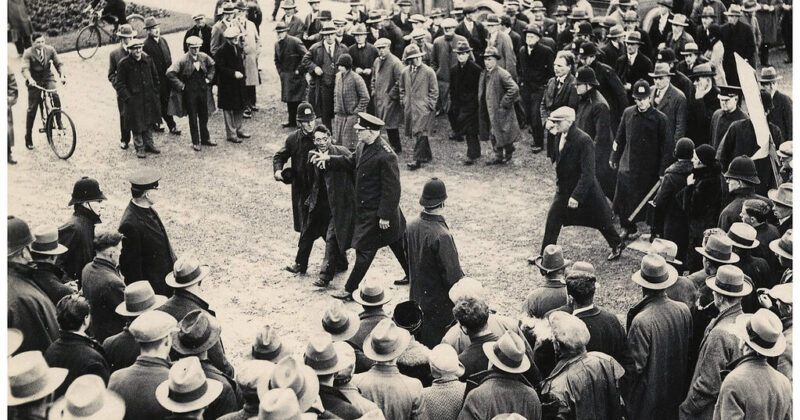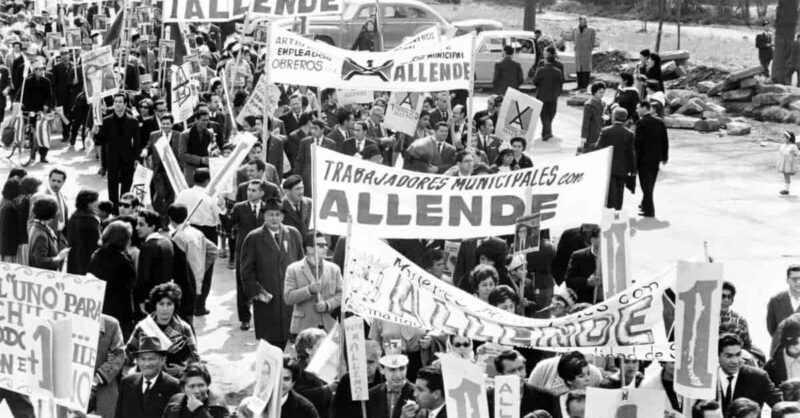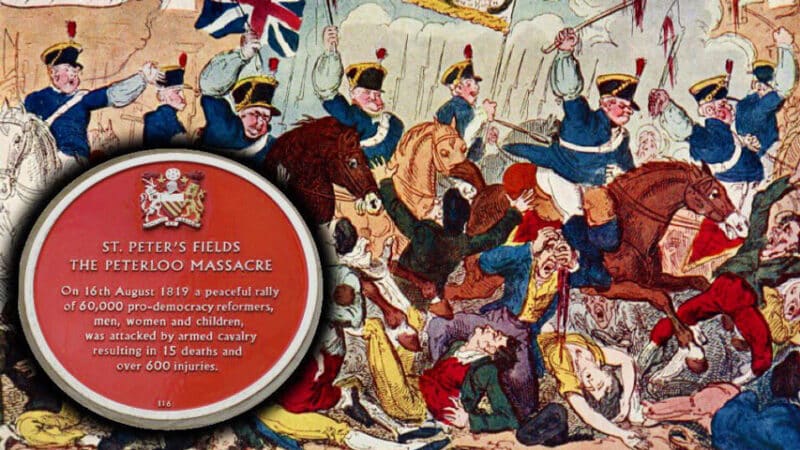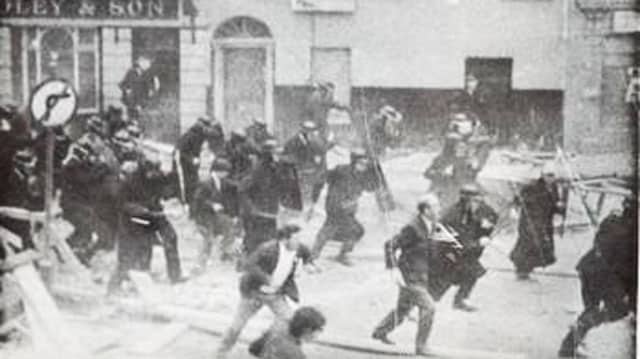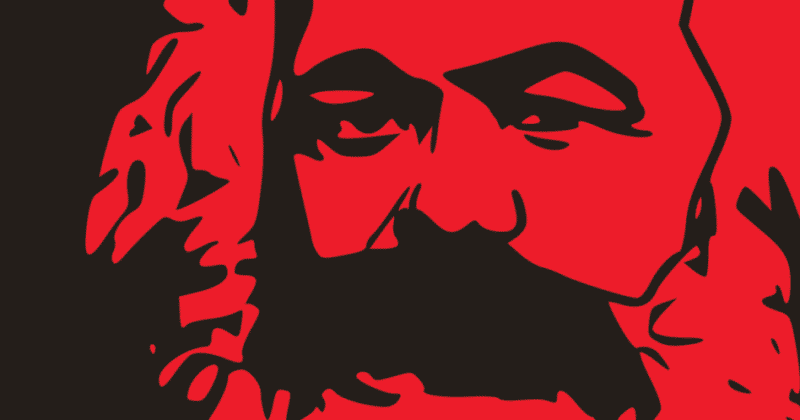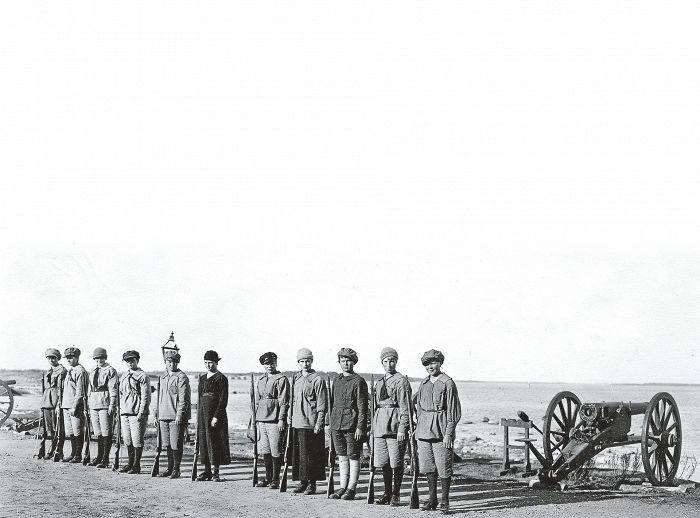History
The Nakba never ended
After 77 years, the Nakba has morphed into open genocide
What if the bosses fight back? The lessons of the Chilean Popular Unity 1970–1973
The events of 1970-73 hold vital lessons for us in a new period of revolutions and military coups.
Good Friday at 25: celebrations can’t mask failures
The GFA promised much but delivered little—except a breathing space for British imperialism
1972: When dockers fought the law—and the dockers won
The 1972 dock strike has important lessons for today as we enter a new period of industrial struggle
Lessons on the 40th anniversary of the Malvinas War
Forty years ago, Margaret Thatcher’s Tory government fought an undeclared war against Argentina for control of the Malvinas.
May 1937: When Spanish workers rose up to defend their revolution
In the first week of May, 85 years ago, the tragic end to the Spanish revolution played out on the streets of Barcelona.
Teaching the British Empire
The Tories are desperate to put a positive spin on the teaching of the British Empire
Luxemburg, Zetkin and Kollontai: socialist women against imperialist war
RECENT EVENTS in Ukraine have been a sharp reminder that under capitalism, inter-imperialist rivalries inevitably lead to brutal wars that cause mass death and devastation. While some of these wars are localised within individual countries or regions, there is always the danger that another World War could break out, which would inevitably involve human suffering […]
Bloody Sunday: 50 years without justice
On 30 January 1972, Bloody Sunday, the British Parachute Regiment shot dead 13 unarmed civil rights protesters in Derry and wounded 15 others.
Battle of Blair Mountain: When miners took on the US state
By Chris Clough One hundred years ago, a five-day bloody battle raged in the US. A million rounds of ammunition were fired, and planes flew overhead dropping bombs and poison gas. This battle, the largest since the Civil War, is rarely mentioned in the history books and the centenary passed by without most politicians even […]
The Paris Commune at 150: Blueprint for a proletarian state
150th anniversary of the Paris Commune.
Friedrich Engels at 200
By Gerald Falke and Dave Stockton The 200th anniversary Friedrich Engels’ birth, gives us an opportunity to look back over his remarkable life and recall the importance of his contribution to what became known as Marxism and to the formation of the political parties of the working class. In many assessments, he appears merely as […]
How the German Revolution was lost
Tim Nailsea reviews A People's History of the German Revolution
1920: the Irish war of independence
100 year anniversary.
Engels 1820-1895: the struggle for scientific socialism
Bicentenary of Engels birth.
The Jarrow Crusade – a model to follow?
1930s unemployed movement.
The unemployed struggles of the 1920s – We will not starve in silence!
HIstory of the National Unemployed Workers Movement.
The lessons of Chile; Popular Unity 1970-1973
The history of the Chilean revolution.
The 80th anniversary of the death of Leon Trotsky
By Dave Stockton It is 80 years today since Leon Trotsky, aged 60, died at 7.25 pm in a hospital in Mexico City from a wound inflicted the day before by Ramón Mercader, an agent of Joseph Stalin, then the all-powerful dictator of the Soviet Union. Stalin had directly ordered the murder having already murdered […]
Rise Like Lions – the Peterloo Bicentenary
August 16 is the bicentenary of the Peterloo Massacre in which 18 people were killed and hundreds injured when soldiers attacked an unarmed crowd of 60,000 men, women and children peacefully demonstrating for the right to vote in Manchester.
100 years of the Chinese revolution
On 4 May 1919, in Beijing, some 3,000 students demonstrated outside the home of the Minister of Communications. After pelting its residents with eggs, they broke in, trashed the building and then torched it. This violent, but rather small scale, incident turned out to be one of the key turning points in 20th Century history, in many ways the real beginning of the Chinese Revolution.
The fight for Labour Party Black Sections
By Jeremy Dewar IT is fitting to mark Black History Month this year by focusing on a battle fought largely inside the Labour Party between 1983 and 1993 for two reasons. First, Black History Month was initiated by groups of mainly black Caribbean and Asian members of the Labour Party, who fought to make the […]
The crisis in South Africa
By Jeremy Dewar MANY SCHOOLS, Labour councils and community groups will be celebrating Black History Month by re-telling the inspiring story of the anti-Apartheid struggle. And so they should. But, only to tell the story, as if the struggle for equality had ended with the dismantling of the Apartheid system, would do a disservice to […]
Mexico 1968: Massacre in Tlatelolco
By Dave Stockton OCTOBER 2, 1968 witnessed the massacre of between three and four hundred of the 10,000 young demonstrators who had gathered in the Plaza de las Tres Culturas in the Tlatelolco district of Mexico City. State forces under the orders of the authoritarian Institutional Revolutionary Party (PRI) regime, claimed they had been fired […]
Ireland 1968-69: Mass revolt against the Orange state
On 5 October 1968, the Royal Ulster Constabulary (RUC) savagely beat a peaceful civil rights march off the streets of Derry. This police riot was flashed over television screens throughout Ireland and Britain that very evening. Among the defenceless marchers was Westminster MP Gerry Fitt, with blood streaming down his face after being truncheoned. Some 96 people needed hospital treatment.
Karl Marx at 200
By Martin Suchanek ANNIVERSARIES NEVER serve as a mere recollection of a person’s historical work. When they are about an epoch-making theorist like Karl Marx, who together with his friend and companion in struggle Frederick Engels, founded “scientific socialism”, there are only two possibilities for the ruling class or the left wing of the bourgeoisie, […]
A defeated revolution: Finland 1918
The heroic fight of the Finnish workers tends to be unfairly overlooked when the great revolutionary events of 1917-18 are recounted. Jens-Hugo Nyberg tells the story
Red October: The working class takes power
IN THE February Revolution of 1917, the workers and soldiers of Petrograd rose in spontaneous revolt against the hardships caused by two and a half years of war. Civilians were verging on starvation, while those fighting suffered horrendous losses – 1.5 million had been killed, five million wounded, with millions more taken prisoner. Demonstrations by […]
The renewal of Bolshevism: Lenin’s April Theses
Lenin’s April Theses, at 479 words one of the shortest of his major works, represented a qualitative advance in his strategic thinking, effected a transformation of the Bolshevik Party’s programme and formed the blue print for the victorious October Revolution that, in turn, changed the world. Nonetheless, the theses built on the previous achievements of […]
The Bolsheviks and the revolutionary struggle for Women’s Liberation
By Joy Macready The 1917 Bolshevik government advanced a revolutionary programme for women’s rights, struggling to break with the backwardness and prejudice of Russia. The Bolsheviks argued that for women to be liberated, they would have to be relieved of their semi-slave status within the family. This would only happen if the state, now based […]
